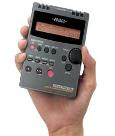
- the use wherever possible of NATURAL LIGHT
- the importance of BACKGROUND and FRAMING in a photograph
- the use of the CLOSE UP function (the 'flower' option)
The aim of the visit to Dennington Church was to acquire images of local history and to practise using the skills of taking good photographs. Thinking about taking photos also encouraged the children to look more carefully at everything in and around the church.

The image on their school badge, for example, was noticed in a carving on the end of a church pew. Photographs like these can be taken back to the classroom to stimulate further discussion and research.
The short film below includes a collection of pictures from outside and inside the church.
The church had a display of fascinating old technology. This included a sand tray for writing in - a sort of ancient message board. This short film shows a child using it.



















































